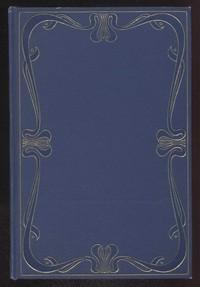Read this ebook for free! No credit card needed, absolutely nothing to pay.
Words: 16528 in 5 pages
This is an ebook sharing website. You can read the uploaded ebooks for free here. No credit cards needed, nothing to pay. If you want to own a digital copy of the ebook, or want to read offline with your favorite ebook-reader, then you can choose to buy and download the ebook.


: The Caxtons: A Family Picture — Volume 07 by Lytton Edward Bulwer Lytton Baron - English fiction 19th century; Families Fiction
Edition: 10
Saith Dr. Luther, "When I saw Dr. Gode begin to tell his puddings hanging in the chimney, I told him he would not live long!"
I wish I had copied that passage from "The Table Talk" in large round hand, and set it before my father at breakfast, the morn preceding that fatal eve in which Uncle Jack persuaded him to tell his puddings.
Yet, now I think of it, Uncle Jack hung the puddings in the chimney, but he did not persuade my father to tell them.
Beyond a vague surmise that half the suspended "tomacula" would furnish a breakfast to Uncle Jack, and that the youthful appetite of Pisistratus would despatch the rest, my father did not give a thought to the nutritious properties of the puddings,--in other words, to the two thousand pounds which, thanks to Mr. Tibbets, dangled down the chimney. So far as the Great Work was concerned, my father only cared for its publication, not its profits. I will not say that he might not hunger for praise, but I am quite sure that he did not care a button for pudding. Nevertheless, it was an infaust and sinister augury for Austin Caxton, the very appearance, the very suspension and danglement of any puddings whatsoever, right over his ingle-nook, when those puddings were made by the sleek hands of Uncle Jack! None of the puddings which he, poor man, had all his life been stringing, whether from his own chimneys or the chimneys of other people, had turned out to be real puddings,-- they had always been the eidola, the erscheinungen, the phantoms and semblances of puddings.
I question if Uncle Jack knew much about Democritus of Abdera. But he was certainly tainted with the philosophy of that fanciful sage. He peopled the air with images of colossal stature which impressed all his dreams and divinations, and from whose influences came his very sensations and thoughts. His whole being, asleep or waking, was thus but the reflection of great phantom puddings!
As soon as Mr. Tibbets had possessed himself of the two volumes of the "History of Human Error," he had necessarily established that hold upon my father which hitherto those lubricate hands of his had failed to effect. He had found what he had so long sighed for in vain,--his point d'appui, wherein to fix the Archimedean screw. He fixed it tight in the "History of Human Error," and moved the Caxtonian world.
A day or two after the conversation recorded in my last chapter, I saw Uncle Jack coming out of the mahogany doors of my father's banker; and from that time there seemed no reason why Mr. Tibbets should not visit his relations on weekdays as well as Sundays. Not a day, indeed, passed but what he held long conversations with my father. He had much to report of his interviews with the publishers. In these conversations he naturally recurred to that grand idea of the "Literary Times," which had so dazzled my poor father's imagination; and, having heated the iron, Uncle Jack was too knowing a man not to strike while it was hot.
Thence the reader may perceive the causes of the change which had come over my father. As Robert Hall says, I think of Dr. Kippis. "He had laid so many books at the top of his head that the brains could not move." But the electricity had now penetrated the heart, and the quickened vigor of that noble organ enabled the brain to stir. Meanwhile, I leave my father to these influences, and to the continuous conversations of Uncle Jack, and proceed with the thread of my own egotism.
Thanks to Mr. Trevanion, my habits were not those which favor friendships with the idle, but I formed some acquaintances amongst young men a few years older than myself, who held subordinate situations in the public offices, or were keeping their terms for the Bar. There was no want of ability amongst these gentlemen, but they had not yet settled into the stern prose of life. Their busy hours only made them more disposed to enjoy the hours of relaxation. And when we got together, a very gay, light-hearted set we were! We had neither money enough to be very extravagant, nor leisure enough to be very dissipated; but we amused ourselves notwithstanding. My new friends were wonderfully erudite in all matters connected with the theatres. From an opera to a ballet, from "Hamlet" to the last farce from the French, they had the literature of the stage at the finger-ends of their straw-colored gloves. They had a pretty large acquaintance with actors and actresses, and were perfect Walpoladi in the minor scandals of the day. To do them justice, however, they were not indifferent to the more masculine knowledge necessary in "this wrong world." They talked as familiarly of the real actors of life as of the sham ones. They could adjust to a hair the rival pretensions of contending statesmen. They did not profess to be deep in the mysteries of foreign cabinets ; but, to make amends, the majority of them had penetrated the closest secrets of our own. It is true that, according to a proper subdivision of labor, each took some particular member of the government for his special observation; just as the most skilful surgeons, however profoundly versed in the general structure of our frame, rest their anatomical fame on the light they throw on particular parts of it,--one man taking the brain, another the duodenum, a third the spinal cord, while a fourth, perhaps, is a master of all the symptoms indicated by a pensile finger. Accordingly, one of my friends appropriated to himself the Home Department; another the Colonies; and a third, whom we all regarded as a future Talleyrand , had devoted himself to the special study of Sir Robert Peel, and knew, by the way in which that profound and inscrutable statesman threw open his coat, every thought that was passing in his breast! Whether lawyers or officials, they all had a great idea of themselves,--high notions of what they were to be, rather than what they were to do, some day. As the king of modern fine gentlemen said to himself, in paraphrase of Voltaire, "They had letters in their pockets addressed to Posterity,--which the chances were, however, that they might forget to deliver." Somewhat "priggish" most of them might be; but, on the whole, they were far more interesting than mere idle men of pleasure. There was about them, as features of a general family likeness, a redundant activity of life, a gay exuberance of ambition, a light-hearted earnestness when at work, a schoolboy's enjoyment of the hours of play.
A great contrast to these young men was Sir Sedley Beaudesert, who was pointedly kind to me, and whose bachelor's house was always open to me after noon: Sir Sedley was visible to no one but his valet before that hour. A perfect bachelor's house it was, too, with its windows opening on the Park, and sofas nicked into the windows, on which you might loll at your ease, like the philosopher in Lucretius,--
"Despicere unde queas alios, passimque videre Errare,"--
Free books android app tbrJar TBR JAR Read Free books online gutenberg
More posts by @FreeBooks

: The Caxtons: A Family Picture — Volume 01 by Lytton Edward Bulwer Lytton Baron - English fiction 19th century; Families Fiction


: Widger's Quotes and Images from A Woodland Queen by André Theuriet The French Immortals: Quotes and Images by Theuriet Andr Widger David Editor - Quotations French Translations into English






